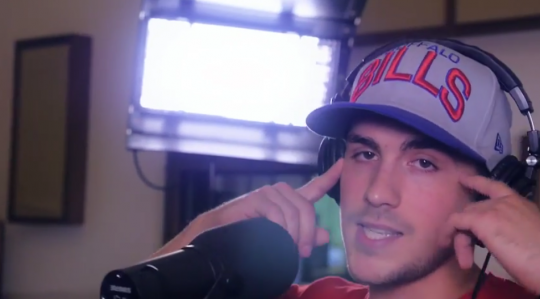The U.S. Department of Agriculture (USDA) spent nearly $1 million on a project to teach kids "meta-thinking" about water, featuring rap songs and spoken-word performances.
"Global water awareness and future water security happens locally—one student, one teacher, and one lesson at a time," the USDA said in a blog post Tuesday.
Using this premise, the government launched "ThinkWater," a project to build water curricula based on "meta-thinking," or getting kids to think about how they think about water.
The project, which has produced rap songs and a "spoken-word performance," has cost taxpayers $900,000.
"Often we hear that better thinking is needed to address particularly prickly societal problems, business challenges, or scientific conundrums," the USDA said. "ThinkWater is a national project supported by a $900,000 grant from USDA’s National Institute of Food and Agriculture (NIFA). The project is designed by educators, scientists, and activists in partnership with the University of Wisconsin Extension to add thinking skills and awareness into existing water education lessons."
The goal of the project is to change the behavior of children and get them to care about water using teachings "developed by the crowd."
"The foundation of ThinkWater is that meta-thinking on the topic of water—the art of asking why and attempting to look beyond what you see on the surface—will build greater understanding, caring, and behavior change," the USDA said. "ThinkWater focuses on a scalable solution: a water study platform on which the best lessons rise to the top because they are developed by the crowd, shared globally, evolved through use, and endorsed by the crowd."
The project has yielded a rap song led by two white rappers called "#CountMeIn," which attempts to explain what meta-thinking is.
The song begins:
The youth are invisible
We talk to them not with them
It’s pitiful
Yeah we see them
We hear them
That’s minimal
What’s on their mind
Find out it’s critical
Cause really how are they thinking
In general?
The song will soon be available for download on iTunes.
Taxpayer funding also went to a "spoken-word performance," which features a group of diverse actors who say, "we are mucking up" children’s education by talking "at them."
"We don’t want them to get older without getting wiser," an actor says.
"Can you imagine that? A whole population of grown-up, emotionally stunted children. Dangerous."
"You know, Lord of the Flies and Wall Street type of shit," a teenage actress says.
The spoken word act goes on to explain that the answer is "meta-cognition."
"We need to get kids thinking about their minds," they say. "It’s the crux of it all, the thing that makes us human."
The act also includes lines like, "The tyranny of information bullied thinking right out of our schools," and "We want people who are knowledge-able, who know the county lines have been gerrymandered to manipulate the vote."
"We don’t want citizens who are information-full," the actors say. "Google is full of information. We already have Google. We need to teach ideas that can change and better humanity."
"We need to think better ideas so we are not slaves to our old ones, that’s meta-cognition," they continue. "Then again, maybe we don’t want thinking adults because thinking adults think for themselves."
"Maybe our economy, maybe our democracy is based on a small group of rich, elite [people] doing the thinking for the masses," the actors say.
ThinkWater also has "amazing online courses," according to the USDA, for pre-kindergartners all the way through college, so students can "care about, think about, and build a deep understanding of water issues and ideas."
ThinkWater is just one of the numerous projects funded by the USDA’s "Water for Agriculture Challenge Area." The USDA plans to spend $30 million over the next five years.
According to the project’s website, ThinkWater is trying to create "an awareness of the way we think about things."
"A water thinker is someone who seeks a deep understanding of water topics and issues, is fluid or adaptive to our ever-changing knowledge of the role water plays in our lives, and is clear that small behavioral changes can make a big difference," a video explaining ThinkWater says.
"An understanding of water requires more than just knowledge of the facts, it requires a critical mind, creative problem solving, a systems approach, and a pro-social awareness of the impacts of water on all people. In short, it requires meta-thinking."
ThinkWater would not be satisfied if students are "just turning off the water while brushing your teeth, or putting a brick in the toilet tank to save water," either.
"Water Thinking takes perspective on water, and sees the relationships, distinctions and systems at play," the website said.
"True, deep, clear thinking on water can change the way a person sees, believes, and acts in relation to the topic rather than just answering test questions or turning off the tap because of guilt or peer pressure," they added.
